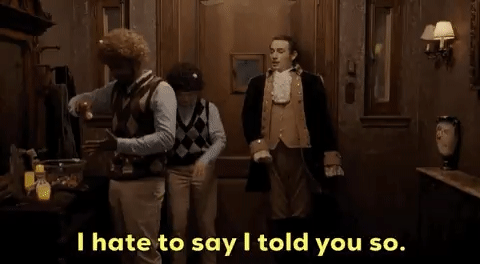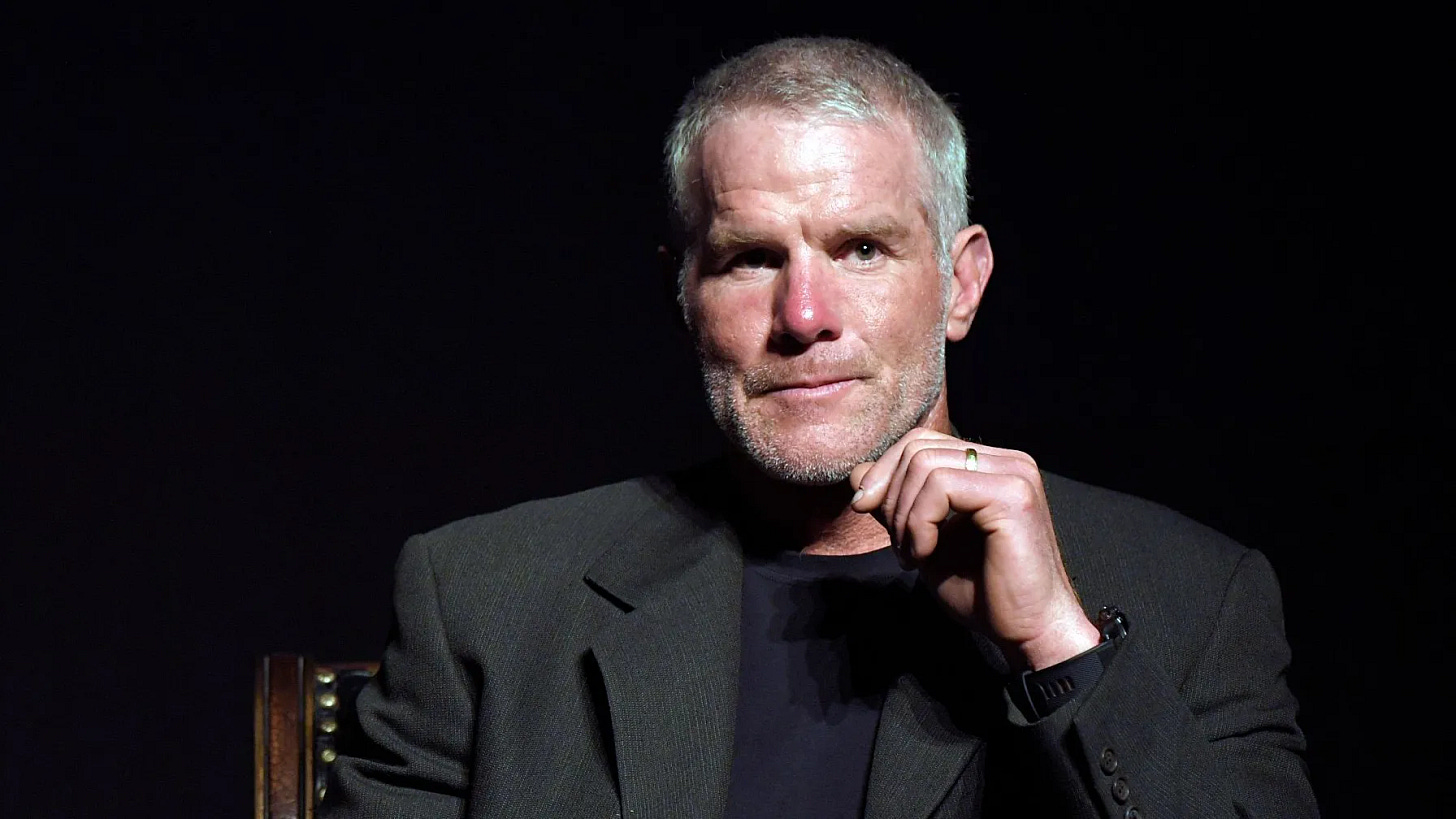'People Struggle to Trust You'
Trustworthiness, Reputation Damage at the hands of egocentric people, Media Narrative is Incorrect, and Reputation in Challenging Times
For most of us, we value being trusted and we know that gift is important to our goals and well being. However, having someone’s trust when we feel ‘deserving’ is not always a given.
So if we were to learn from someone else, that “People struggle to trust you,” it might be a hit to our emotions, ego and attitude.
That phrase was in an article this past week in the Harvard Business Review. The piece, entitled, Build Your Reputation as a Trustworthy Leader, was written by Ron Carucci, co-founder and managing partner at Navalent.
Again, “people struggle to trust you.” That hurts, doesn’t it?
What it says and what we might think it says could be two different things, or possibly the same. Regardless, the translation in our minds doesn’t feel good for anyone, I suspect.
It’s important to examine why we are not perceived and judged as trustworthy. Choosing not to understand is not going to prove helpful to us, now and later.
Here’s what Carucci says a 15-year longitudinal study (I confess, I had to look up what that meant) of more than 3,200 leaders on organizational honesty revealed: “that to earn and keep trust, leaders must accept that reliability and integrity are merely table stakes.
“They don’t, on their own, earn you a reputation of being trustworthy. They may get you labeled as dependable or easy to work with, but to be trusted consistently requires more.”
He went on to write the four consistent behaviors that a person must exhibit to earn trustworthy status, a state that makes our lives much easier and less stressful. And not by a little bit either, as Carucci claims his research proves that if you do what he recommends, “you’ll be 16 times more likely to earn and keep the trust of others.”
Be who you say you are.
Treat others and their work with dignity, including creating opportunities for others to shine and giving people, he says, a safe place to “fail.”
Balance transparency with discretion, as in set and keep information boundaries and offer and invite dissent and feedback.
Build bridges that unify, by working to turn rivals into accomplices (I prefer collaborators!) and be fascinated by others to create belonging.
How other people’s misbehavior causes reputation damage for others
I don’t think those of us who harm people and make their lives miserable really understand the negative impact created, the pain and suffering inflicted.
And even when we might learn, we may not always feel remorse, a responsibility to help and do what in possible and needed. A story this week shows how this happens.
Jennifer Sterger was sent salacious texts by now Hall of Fame quarterback Brett Favre back when he was playing for the New York Jets in 2010. It was a big story at the time.
Favre is back in the news, again for alleged unsavory behavior, just a different type.
“An investigative report by Mississippi Today revealed text messages showing Favre,” was helped to, “obtain at least $5 million in welfare funds in order to help build a new volleyball center at the University of Southern Mississippi. Favre played football at Southern Miss, and his daughter was a volleyball player there at the time some of the texts were sent,” reported Jenna Lemoncelli at the New York Post.
Sterger noticed this story and commented on Twitter:



“Sterger discussed how the scandal affected her reputation and career journey,” Lemoncelli wrote.
“Days like today are always tough,” Sterger tweeted. “I want to act like my life isn’t still drastically impacted by another person’s treatment of me, but that would be a lie. To think my legacy and everything anyone knows of me.. can be summed down to the title of ‘The Brett Favre Girl,’ is not only disgusting, but disheartening.
“And every time sports has a #MeToo moment, I’m always somehow the Go-To expert,” Sterger said. “But what we haven’t addressed is this weird hero culture we have created around pro athletes that somehow grants them immunity to consequences…”
Sterger explained she has been in therapy for years since the scandal. This is important to note because it’s not often reported or publicly known how deeply and painful that reputation harm at the hands of other people becomes for people.
On top of that, as Sterger explains, not seeing sustained effort by the perpetrator to show they are always working to improve themselves and do right is another wound.
“I believe in redemption when people have: expressed remorse. Have done the work. And have taken that work out into the world to show you they learned something from it. Brett Favre has done none of that,” Sterger tweeted.
Sterger summed up her reasonable feelings about the trauma and honestly, how most people abused in some manner by egocentric personalities, who didn’t see those people face the suffering they did, feel and must endure.
“I’m roadkill in his rear view.. And you all are just now discovering that awful people do awful things when there are no consequences. Welcome to the real world,” she tweeted.
“Roadkill.” That’s how she was left feeling. Sterger didn’t invite the mistreatment or the abuse that came after it from sources other than Favre. She didn’t receive compassion from Favre either.
His reputation suffered and it’s part of his name and still being brought up years later. Yet Favre hasn’t sought to heal wounds. It’s notable to realize that Sterger’s reputation, against her will, has been tied to Favre in some respects and she’s had to endure it, through no misbehavior of her own.
The media and public just don’t get it, what reality is for those maimed by perpetrators of reputation damage. The law is not built to help everyone hurt or defamed and even the cases that do end up in court don’t often result in legal remedy.
Business and Leaders in General are not as the Public Narrative Communicates
From Chief Executive magazine
“MIT’s Andrew McAfee, author of the bestsellers More from Less, Machine, Platform Crowd and The Second Machine Age, is annoyed by how businesses are stereotyped.
“The thing I don’t like about a lot of the current [media] coverage is it hearkens back to this robber baron era of thinking about business where there are just evil bosses trying to exploit helpless employees,” he says.
“Man, that’s a tired narrative. That doesn’t really work anymore. I guarantee you every company that I’ve worked with really wants its talent to not walk out the door and not be unhappy and not quit,” McAfee asserts.
Reputations are emotional and contagious. Sometimes they reflect reality and sometimes they don’t. It’s critical then to communicate in words and actions, consistently, what is factual and true.
Tumultuous times require next level leadership and Christopher Stevens talked about it in Forbes magazine.
Stevens, vice president and general counsel of International Finance Corporation (World Bank Group), wrote a piece titled, “Reputation And Thought Leadership In Tumultuous Times.”
The part of his article that I’d like to focus on is the question he posed:
Why Is Reputation Important?
“Reputation is both a competitive advantage and a risk mitigant.
“In a competitive market for products, services, capital, clients and staff, stakeholders perceive a greater value and a lower risk in partnering and working with highly regarded organizations. A high reputation means higher quality, lower risk and greater success in achieving an organization’s purpose and outcomes.
“An organization that enjoys a good reputation among its stakeholders will win the trust of its shareholders and board, attract and retain the best staff and clients, obtain better financing at lower costs and achieve better results—all enabling it to further enhance its reputation. It becomes a virtuous cycle,” Stevens writes.
How many leaders, solopreneurs and organizations think like this though?
Not all of them. Not the vast majority. Some.
Yet those who do, “get it,” benefit from it because it’s a clear, documented competitive advantage and risk mitigant.
Difficult, yet possible, with practice and commitment

It’s not easy, is it? I have to be honest, I’m raising my hand too. Yet it is possible. If everyone did it, it wouldn’t be a “superpower.” So if you can do it, even if only occasionally or semi-regularly, you’re probably doing far better than most people.
Link of the week
Personal Privacy and Compassion in Employment and Firing Decisions
An interview with Katya Komarova, public relations consultant, college educator and the founder of Wits PR, about a story where a meteorologist saw his privacy breached and his reputation unexpectedly damaged, leading to his termination.
Michael Toebe is the creator of Reputation Notes and founder and reputation specialist at Reputation Quality, a practice that serves and helps successful individuals and organizations in further building reputation as an asset and when necessary, ethically and successfully protecting, restoring and reconstructing it.
NOTE: if you would like to be interviewed for the newsletter and can talk about important, interesting and insightful matters of reputation, you can contact me at Michael.Toebe@Reputation-Quality.com.
NOTE II: If you have reputation-related questions you’d like answered in this newsletter you are welcome to ask them.
I can-and-will grant you anonymity regarding your question if that’s important to you.










